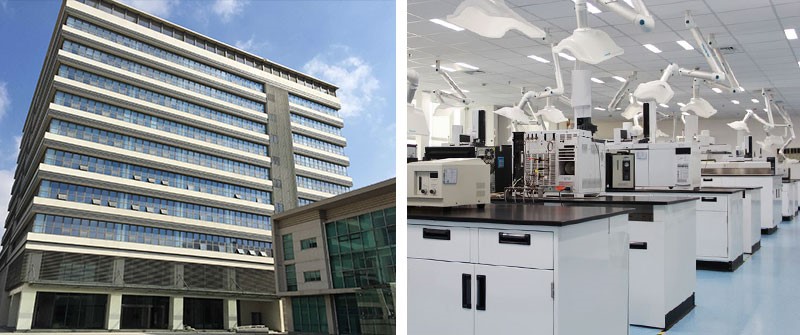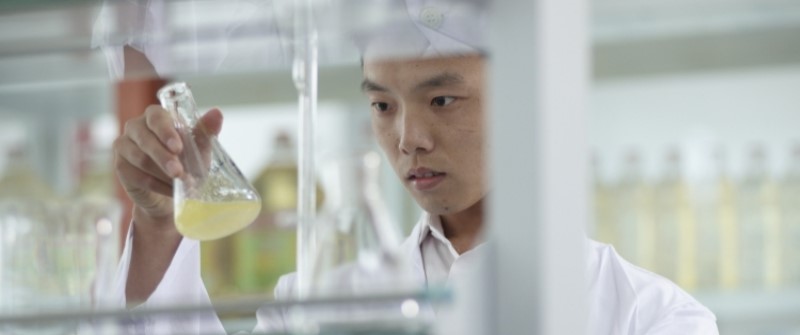In ensuring that our plantations and mills operate in an environmentally and socially responsible manner, we are guided by our No Deforestation, No Peat, No Exploitation Policy that, applies to our own operations as well as all third-party suppliers. Concurrently, we continue to pursue the Roundtable on Sustainable Palm Oil certification standard as a core element of our sustainability strategy for our upstream operations.
Cultivation
Germinated seeds are planted and the seedlings spend about a year in the nursery before being transferred to the fields. Here, the young palms are planted about nine metres apart resulting in 128 to 140 trees per hectare.
Harvesting & Oil Palm Yield
Oil palms generally begin to produce fruits 30 months after being planted in the fields with commercial harvest commencing six months later. However, the yield of an oil palm is relatively low at this stage. As the oil palm continues to mature, its yield increases and reaches peak production in years seven to 18 before gradually decreasing thereafter. The typical commercial lifespan of an oil palm is approximately 25 years.
Fully mature oil palms produce 18 to 30 metric tonnes of fresh fruit bunches (FFB) per hectare. The yield depends on a variety of factors, including age, seed quality, soil and climatic conditions, quality of plantation management and the timely harvesting and processing of FFB.
The ripeness of FFB harvested is critical in maximizing the quality and quantity of palm oil extracted. Harvested fruits must be processed within 24 hours to minimize the build-up of fatty acids.
Milling of Fresh Fruits Brunches (FFB)
Milling of FFB takes place within 24 hours from the harvesting of FFB. FFB are first transferred to the palm oil mills for sterilization by applying high-pressure steam, whereupon the palm fruits are enzyme-deactivated and separated from the palm bunches.
After steaming, the palm fruitlets are crushed in a pressing machine to obtain crude palm oil (CPO) and palm kernel. Waste and water is then cleared and separated from the CPO by means of a centrifuge. The cleared CPO emerging from the centrifuge is then sent for refining while the palm kernel nut is sent for crushing. The empty fruit bunches and liquid waste arising from the process are recycled as fertilizer in the plantations.
Shipping
As part of Continental’s integrated business model, we own a fleet of liquid and dry bulk carriers which improves the flexibility and efficiency of our logistic operations. This fleet provides partial support for our total shipping requirements while the balance of our requirements is met by chartering-in third-party vessels.
As at 2019, we owned and managed 85 tankers / dry bulk vessels with a total tonnage of about 2.3 million MT.
Research & Development
Continental’s research and development (R&D) activities support our business operations by improving manufacturing processes, ensuring the consistency of existing products, enhancing their quality and developing new innovative products. Our R&D work is carried out by around 750 researchers in various locations worldwide.
RBD In China and Philippines


